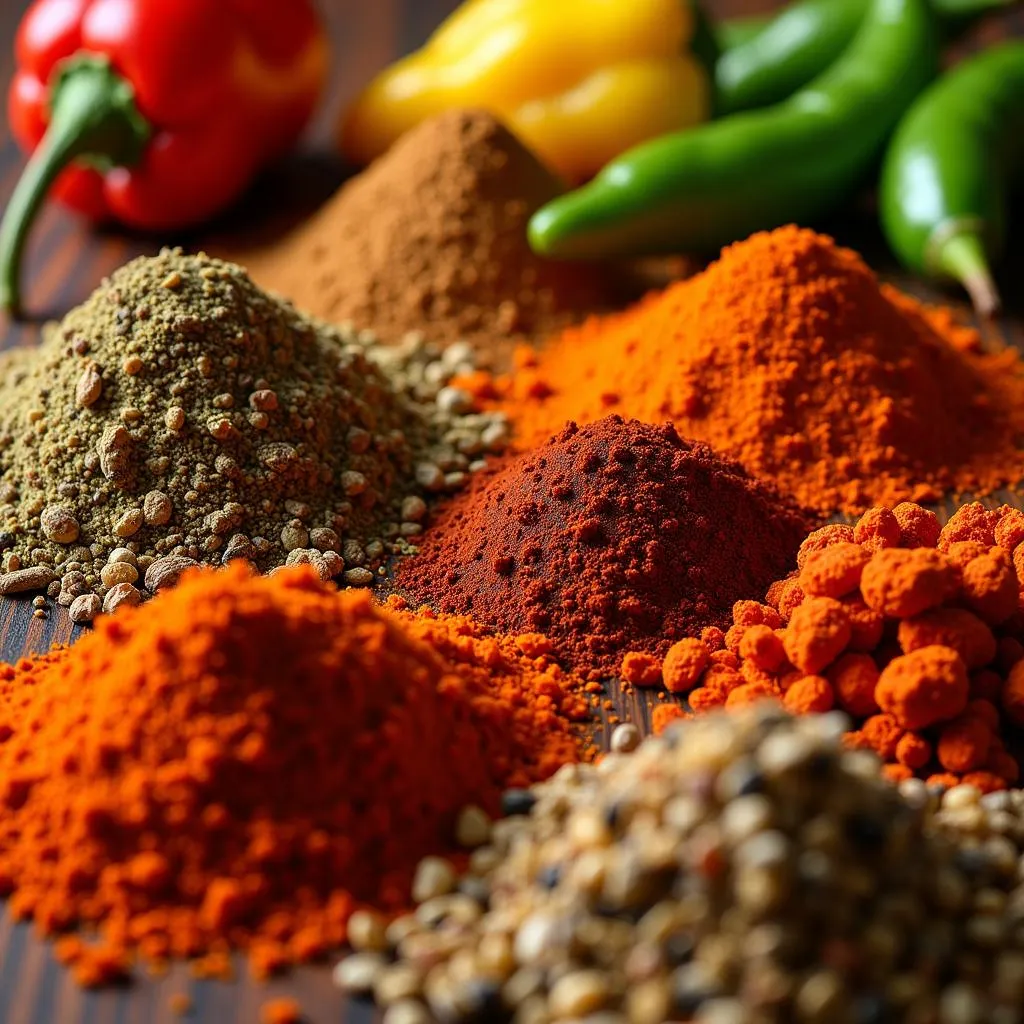Your Guide to the Best African Food Shops: A Culinary Adventure Awaits
Africa is a continent brimming with vibrant cultures, and its culinary landscape is just as diverse and captivating. For those seeking authentic African flavors and a taste of the continent’s rich heritage, exploring local food shops is an essential part of the experience. These shops offer a window into the heart of African cuisine, showcasing a wide range of ingredients, spices, and traditional delicacies.
Discover a World of Flavors: What to Expect at African Food Shops
Stepping into an African Food Shop is like embarking on a sensory journey. The air fills with the enticing aroma of spices like cumin, coriander, and turmeric, along with the tantalizing scent of freshly baked bread and exotic fruits. You’ll find colorful displays of vibrant produce, exotic grains, and an assortment of dried meats and fish.
Here’s a glimpse of what awaits you:
Fresh Produce:
- Exotic Fruits: From the sweet and tangy passion fruit to the creamy avocado, African food shops boast a dazzling array of fruits you might not find elsewhere.
- Vibrant Vegetables: Discover vibrant greens like amaranth and jute leaves, or explore root vegetables like cassava and yams.
- Unique Herbs: The vibrant flavors of African cuisine come from an abundance of unique herbs like baobab leaves, moringa, and ginger.
Spices and Seasonings:
- Berbere: A fiery blend of spices used in Ethiopian cuisine, often containing chili peppers, ginger, garlic, and fenugreek.
- Ras el Hanout: A complex Moroccan spice blend, incorporating cinnamon, cloves, cardamom, and turmeric, among others.
- Sumac: A tangy and citrusy spice commonly used in North African and Middle Eastern cuisines.
Grains and Legumes:
- Fonio: An ancient grain known for its nutty flavor and high nutritional value.
- Millet: A versatile grain used in many African cuisines for porridges, breads, and couscous.
- Black-Eyed Peas: A staple legume packed with protein and fiber, often cooked into flavorful stews and salads.
Meat and Seafood:
- Goat Meat: A popular choice in many African cuisines, often used in stews, curries, and kebabs.
- Beef: Beef is commonly used in African dishes, particularly in the form of dried meat or in stews with rich sauces.
- Fish: Coastal regions feature a variety of fresh fish and seafood, often grilled, fried, or used in flavorful stews.
Ready-to-Eat Delicacies:
- Fufu: A starchy dough made from cassava, plantains, or yams, commonly served with stews and sauces.
- Jollof Rice: A flavorful rice dish, often seasoned with tomatoes, onions, and spices, popular across West Africa.
- Samosas: Crispy, savory pastries filled with spiced vegetables or meat, a popular street food in many African countries.
Beyond the Food: The Experience of African Food Shops
Visiting an African food shop is more than just a shopping trip; it’s a cultural immersion. You’ll often encounter friendly shopkeepers eager to share their knowledge of the products and offer insights into African culinary traditions.
“African food shops are a vibrant hub of community, where people come together to share recipes, exchange stories, and connect over a shared love for African cuisine,” says Chef Amina Diallo, a renowned chef and culinary expert.
They can also be a great place to learn about the history of African cuisine and the origins of different dishes.
Finding the Right African Food Shop for You
The best African food shop for you will depend on your preferences and location.
Here are a few tips to help you find the perfect one:
- Research Online: Use online resources like Google Maps, Yelp, or social media to find African food shops in your area.
- Ask Locals: Talk to friends, family, or neighbors who may know of local African food shops.
- Visit Different Shops: Don’t be afraid to explore different shops to find the one that best suits your needs.
What to Look For in an African Food Shop:
- Freshness: Look for bright and vibrant produce, and check expiration dates for packaged goods.
- Variety: A good African food shop will offer a wide selection of ingredients, spices, and ready-to-eat delicacies.
- Cleanliness: The shop should be clean and well-maintained.
- Friendliness: The staff should be welcoming and helpful, willing to answer your questions and provide recommendations.
Tips for Navigating Your First African Food Shop:
- Come Prepared: Bring a list of the items you want to purchase to avoid overspending or forgetting anything.
- Be Open to Trying New Things: Don’t be afraid to step outside your comfort zone and try new ingredients and dishes.
- Ask Questions: Don’t be afraid to ask the shopkeepers for recommendations or advice on using specific ingredients.
- Enjoy the Experience: Embrace the vibrant atmosphere and the unique cultural experience of shopping at an African food shop.
FAQ:
Q1: What are some of the most popular African dishes I can find in a food shop?
A1: You can find ingredients to make iconic dishes like Jollof Rice, Fufu, Egusi Soup, and many more. You can also find ready-made dishes like samosas, spring rolls, and more.
Q2: Where can I find the best African food shops online?
A2: You can use search engines like Google, Yelp, or social media platforms like Instagram or Facebook to find local or online African food shops.
Q3: What are some must-try African ingredients?
A3: Explore exciting ingredients like baobab fruit, fonio grain, moringa leaves, and berbere spice.
Q4: What is a good way to start using African ingredients at home?
A4: Start with simple recipes that use familiar ingredients alongside African spices, herbs, and grains.
Q5: Are there any online resources that can help me learn more about African cuisine?
A5: There are numerous websites, blogs, and YouTube channels dedicated to African cuisine.
Q6: What kind of kitchen equipment should I have for cooking African food?
A6: A good set of pots and pans, a mortar and pestle for grinding spices, and a blender for making sauces and soups will be helpful.
Q7: Can I learn how to cook African food at home?
A7: Absolutely! Many African food shops offer cooking classes or workshops. You can also find plenty of African recipes online.
Embark on a culinary journey through the vibrant world of African food shops. Explore unique flavors, discover new ingredients, and immerse yourself in the heart of African cuisine. The adventure awaits!



